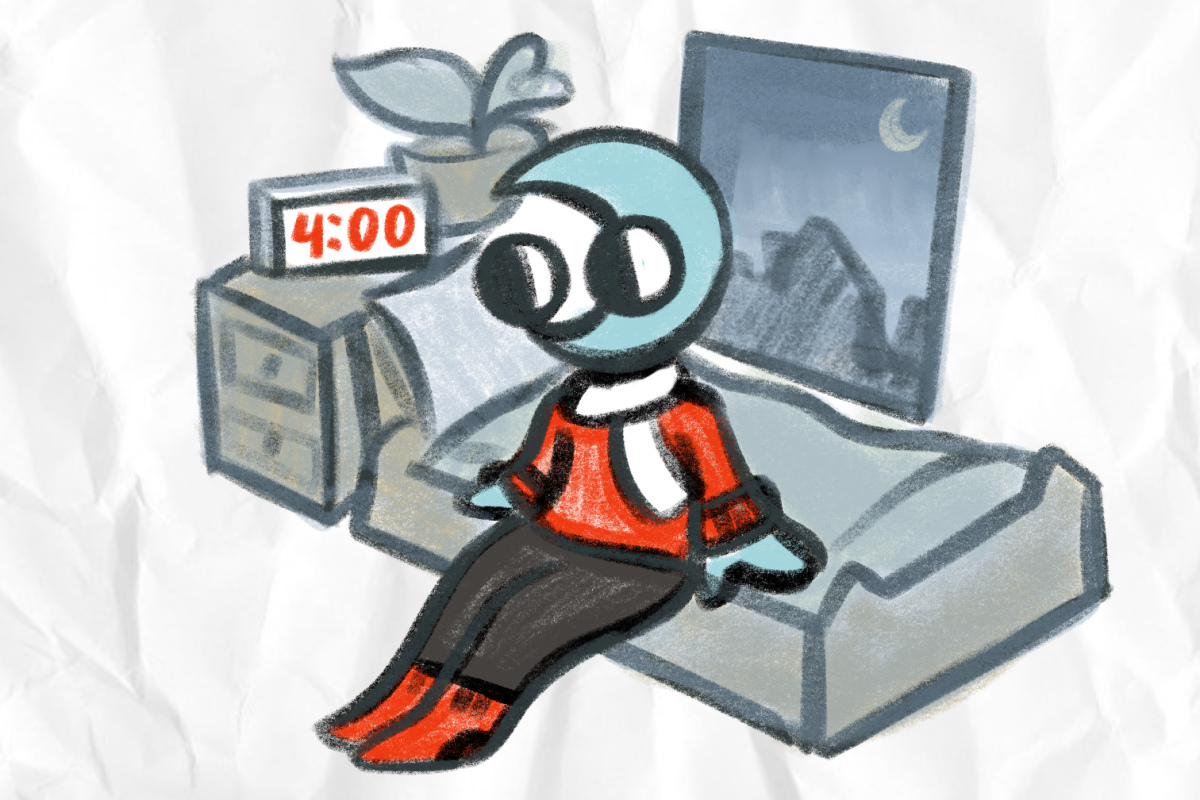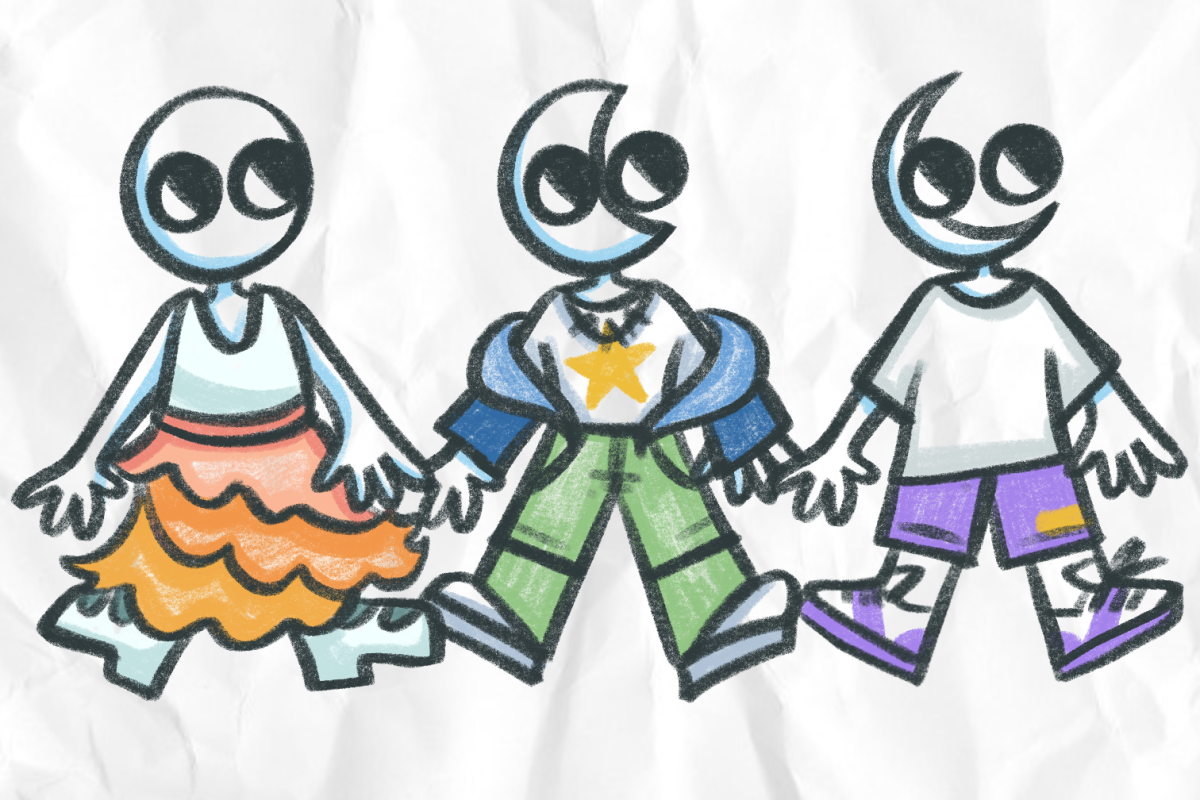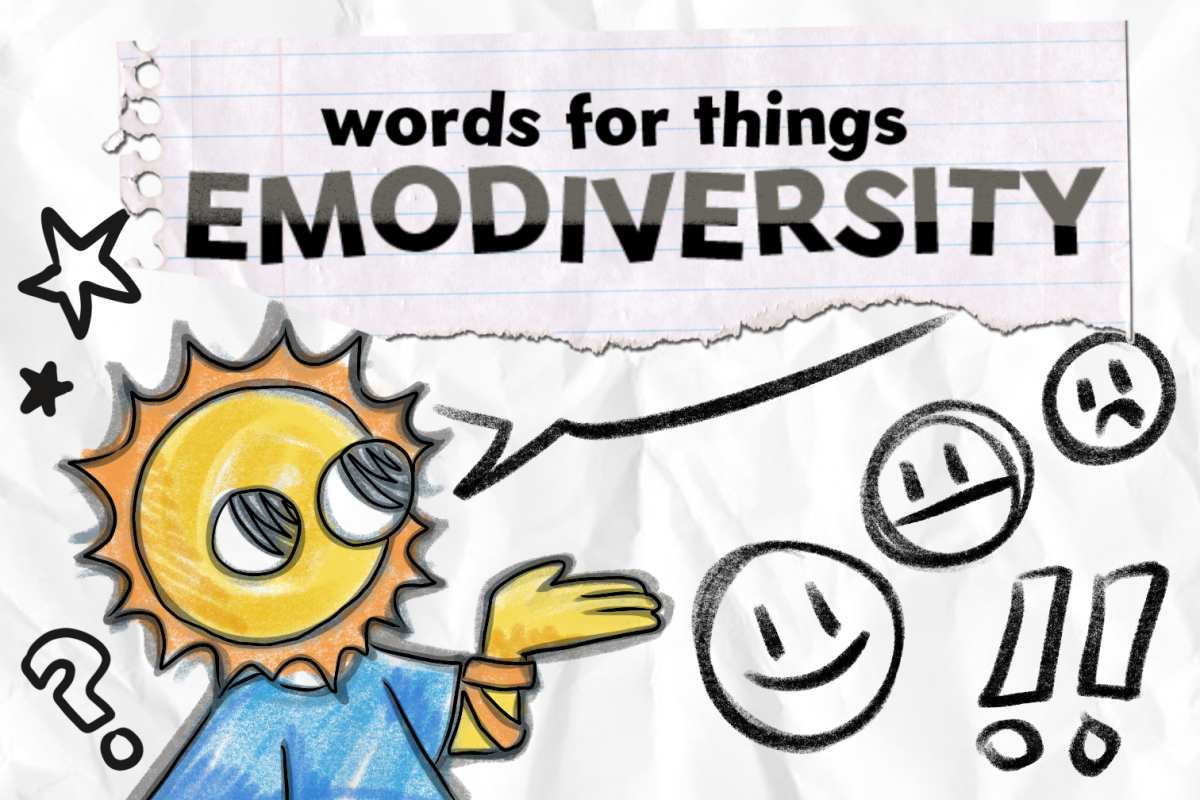“brother what in thr [sic] WORLD”
“platonic should not belong in that sentence”
“ive never even been on top of any of the bros”
I should’ve known that explaining the concept of platonic cuddling to my friend would be a hard sell — after all, it sounds like a complete paradox. Holding someone lovingly and tenderly? Platonically? Anything platonic is defined as being nonsexual, and “being on top of someone” — even when it’s just friends cuddling — seems like the complete opposite.
It wasn’t just cuddling — we also talked about platonic hand-holding, but I wasn’t able to convince him that was possible either. But I don’t blame him — we grow up internalizing social cues about what kinds of behaviors are friendly, and what might indicate some romantic tension. It’s human nature to categorize, but the urge to draw the line neatly between platonic and romantic interactions can limit our understanding of what love comprises. There’s a lot of gray area in our relationships, but this uncertainty can be uncomfortable — in situations that have both romantic and platonic elements, it can often feel more stable or responsible to choose one side of the binary.

The term “platonic relationship” has an ironic history. “Platonic” refers to Plato’s philosophy of a “platonic ideal,” an ideal form that material objects can only attempt to emulate. Seventeenth-century satirists applied this idea to mock nonsexual love as pretentious and unrealistic, as opposed to sexual love, which was apparently more practical.
We’ve come a long way since then. Platonic is no longer pejorative, romance is less frequently conflated with sex and we now have a slew of new terms to use for everything in between. Even so, our concept of what it means to “love” someone still leans romantic. This tendency can cause us to overlook platonic relationships, relationships in gray areas and the parts of ourselves that a romantic lens obscures.
I grew up with constant reminders about the looming presence of romance. From family members joking about “finding a boyfriend” to my mother speculating about future grandchildren, I understood that a large part of my life would be defined by romantic relationships. So as the possibility of dating, even casually, entered my life in middle school, I began seeing myself through the lens of desirability. Maybe I never articulated it this way, but my internal benchmark was being dateable, which meant looking conventionally attractive and feminine. When I failed to meet those expectations, my self-perception crumbled.

Initially, I thought that adverse experience would cause me to avoid dating for a long time — longer than an average academic weapon avoids it — but as the months passed, I realized that how I felt about romance wasn’t the point. Rather, I needed to bring myself to a point where my relationships, romantic or not, were genuine and reciprocal.
Romance can still be crucial and rewarding, but the tunnel vision toward it means that we miss out on other meaningful forms of connection. Really, whether interactions are platonic or romantic is less important than what they truly mean to us.
Obviously, the muddy distinction between platonic and romantic relationships isn’t the only factor at play here. There’s the heteronormative belief that all females should have children; there’s the complex way young people start to internalize gender and romance. But, having attempted romance a little too early, I wish that I could have been able to take a step back and evaluate what I was actually looking for when gearing myself towards a romantic relationship.
As we approach Valentine’s Day, it’s important to have patience for that sort of gray area. Yes, ambiguity gets a bad rap — situationships are derided for their lack of clarity — but as long as you’re communicating your needs and expectations thoroughly, blurring the line between platonic and romantic shouldn’t be seen as less legitimate than committing to either side. Labels themselves can be confining, creating new expectations for relationships, which are inherently personal and unique. So instead of worrying about particular labels to use for a relationship, consider what both of you enjoy about or want out of it — does it have to be romantic?
And if you do end up deciding that things are better off platonic, there’s nothing wrong with that either. Although romantic leads fizzling out can often be perceived as a personal shortcoming (“Is this rizz?”), it takes a lot of maturity to realize that some people are better off as friends. Platonic relationships can be just as fulfilling, just as deserving of the understanding of “love” that we often associate with romance — maybe it feels weird to tell your friends you love them, but I’d hope that it’s true. (Hey, you don’t need to be on top of the bros. It’s just nice that they’re around.)
But most of all, every type of love benefits from being able to trust yourself. The more you understand yourself — your wants, your needs, your emotional touchstones — the easier it will be to find people who bring out the best in you. Sometimes, that process of self-discovery comes with a side of platonic cuddling.







